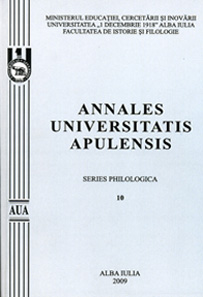
Keywords: demystifying; perverted meaning; self-comment; tragic; grotesque
: The present paper deals with an early text written by Eugen Ionescu, “Viaţa grotescă şi tragică a lui Victor Hugo” (Victor Hugo’s grotesque and tragic life). Written in the same vain as his first book, “NU”, the text on Victor Hugo is intended to be a demystification of the French romantic poet’s life and works. The paper comprises two parts, i.e. “La început (n-)a fost titlul..” (In the beginning was (not) the Title) and “Între demistificare şi răstălmăcire prin întâmplări” (Between demystification and perverted meaning). The joining of the two adjectives grotesque and tragic in the context of a famous character’s life seems paradoxical initially. Later on, it acquires a personal logic which does not deny the iconoclastic Eugen Ionescu. True to himself, he preserves in the analysed text the same spirit which brought him the award for the debut volume Nu. Unlike other writers who give their works significant titles directly connected to the content, Eugen Ionescu either strays from this method altogether, or surprises by joining words which apparently exclude each other. In the present case we are dealing with a well elaborated “theses” which the title puts forward, namely of the fact that the great French romantic poet had a grotesque and tragic life. The extinction of these qualifying adjectives over the work will logically confirm the strong relation between life and work, so that no only the man, but also the poet, the husband, the lover and the political man is demystified. Eugen Ionescu uses the word “happenings” to name what he told in minute detail, in a tone specific to a realistic record whose elements are sustained by testimonies from several contemporary personalities. Moreover, the author includes himself in the text as well, with the same aim of increasing the verisimilitude of what he says, as he did in his previous volume. The demystification through the recourse to the grotesque dimension, existing or invented – which is irrelevant in the case of literature – is an exercise that becomes Eugen Ionescu perfectly. It is the happy discovery of a genuinely innate calling, and not artificially construed. We find out from Eugen Ionescu how the grotesque and the tragic can co-exist in the life of the same character. The grotesque and tragic life of Victor Hugo is first and foremost the tragic and grotesque fate of his literary creation. When he speaks about grotesque and tragic in Victor Hugo’s life, but the grotesque and the tragic will definitely be those imagined by him, and not illustrations of the academic dictionary definitions. Through the text „Viaţa grotescă şi tragică a lui Victor Hugo” (Victor Hugo’s grotesque and tragic life), Eugen Ionescu communicates a sentence that he gives following a critical overview placed at a certain height and distance in time of a “value” imposed by a certain historical moment: he doesn’t like Victor Hugo. The shocking effect that the text Viaţa grotescă şi tragică a lui Victor Hugo” (V. Hugo
More...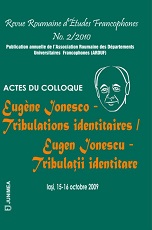
Keywords: Eugen Ionesco; paradox
L’identité « réelle » (rigoureusement cohérente et « définitive ») d’Eugène Ionesco, autant au niveau personnel qu’à celui de l’écriture, reste un mystère. Pour l’observateur « neutre » (ou, de toute façon, extérieur), cette énigme est d’autant plus difficile à « attaquer » que les données du problème s’avèrent non seulement disparates, mais aussi fortement contradictoires. Animé souvent par la volupté de contredire, de contrer, de contrarier qui que ce soit (à la rigueur, soi-même!), mais toujours avide de découvrir la vérité, Ionesco a oscillé sans cesse entre deux pôles: être français – être roumain; contrainte – liberté; opacité – transparence; confusion – lucidité; raison – déraison; illusion – désillusion(nement); espoir – désespoir; peur/angoisse – insouciance/aplomb/insolence; tragique – burlesque et ainsi de suite. Grâce à ce mouvement perpétuel et plein d’effervescence, Ionesco a réussi à échapper à toute sorte de fixismes – y compris la mort, dont le spectre l’a toujours hanté.
More...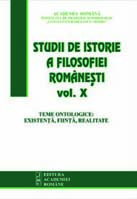
Keywords: Ionescu; exile; identity; absurd drama; characters
More...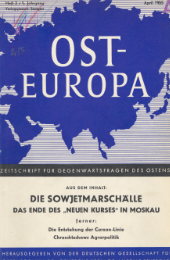
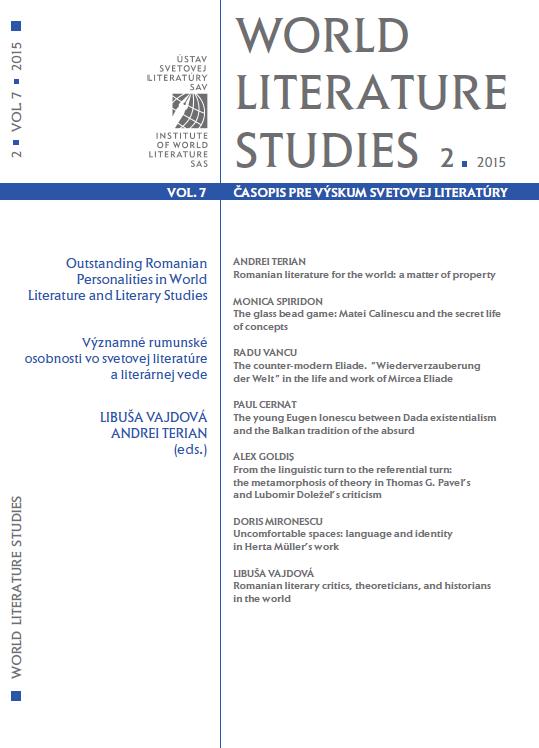
Keywords: Eugen Ionescu/Eugene Ionesco; Dada existentialism; Balkanism; Absurdism; Modernism; Cultural identity
This study focuses on the relationship between the early writing of Romanian author Eugen Ionescu’s (who was to become, after 1949, the French writer Eugène Ionesco) and his avantgarde plays, from the perspective of the relationship with the Romanian tradition of the absurd. On the one hand, the study discusses the playwright’s, the poet’s, and the essayist’s particular affinity with the Dada spirit of Tristan Tzara and Urmuz (an atypical forerunner of the avantgarde). However, on the other hand, through his constant admiration for Ion Luca Caragiale, whom he considered the greatest unknown playwright in the world, Ionescu regains a repressed, but authentic and productive Balkan tradition, located somewhere between traditionalism and modernism, which was an object of obsession for the intellectuals in interwar Romania. By assuming and exporting it to the Parisian stage, the author’s ambiguous Romanian and French identity tries to break free from the complex of belonging to a peripheral culture, lacking access to universality. The fusion between Dadaist playful anarchism and the Balkan tradition of the absurd implies, in Ionescu’s case, the discovery and recovery of an alternative modernity, with a considerable subversive potential. Its elements can be found in his essay -volume Nu (No, 1934), whose playful and nonconformist existentialism, with a metaphysical scent and a deconstructive vitality, contains the embryo of all the playwright’s later qualities, which can be traced to his La cantatrice chauve (The Bald Soprano) and La leçon (The Lesson).
More...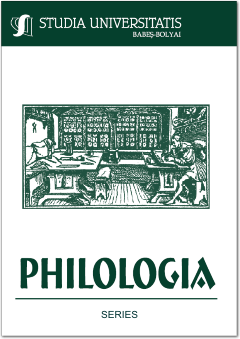
Keywords: Ioana Em. Petrescu; Ion Barbu; postmodernism; communism.
Ion Barbu and the Poetics of Postmodernism: An Unacknowledged Book. The paper analyses Ioana Em. Petrescu’s book Ion Barbu and the Poetics of Postmodernism trying to determine some of the socio-cultural, editorial and theoretical reasons for which the book did not receive recognition in the Romanian cultural context (despite the fact that the book proposes an original and coherent view on important topics such as postmodernism or the works of canonical poet Ion Barbu).
More...Keywords: Barbu Iscovesc; Theodor Aman; 1848 Revolution; bequeath; National Museum of Art; portrait
Barbu Iscovescu was one of the three Romanian painters, along with Ion Negulici and Constantin Daniel Rosenthal, who put his brush on the service of the 1848 Wallachian Revolution. After the conclusion of the revolution, Iscovescu left Bucharest and went to Transylvania where he painted the portraits of Avram Iancu, the head of the Romanian revolution in the Apuseni Mountains and to some of his followers. Afterwards he wandered through Europe and finally settled in Constantinople. There he made a brilliant career for himself as an outstanding portrait-maker. He earned good money and lived in luxury, as a real dandy. But being ill and feeling that he will die soon he dictated his last will to a few friends gathered beside his bed. He bequeathed all his original works and those he collected along with his library to the National Museum in Bucharest. But three years passed till the trunks containing Iscovescu's works of art would reach Bucharest and another six years till a commission made the inventory and took a decision concerning how to use that collection. A few paintings were framed and exhibited in the Museum. Some lithographs and art albums were sent to the newly- founded School of Fine Arts as documentary material for students. It was strange enough that the most important part of his collection, that one containing the portraits of the Transylvanian revolutionists was considered of less importance and the works were gathered and sealed in a special portfolio never to be exhibited or shown to students. Labeled as „useless works„ these masterly portraits were discovered forty-five years later and finally found the place they deserved at the National Museum of Art.
More...Keywords: Barbu Delavrancea;Cella Delavrancea; Timoleon Pisani
Among the distinguished members of the Conservative Party, at the beginning of the twentieth century, was Barbu Delavrancea. And among those who worked for the development of the daily life of this party, L'Epoque, was Timoleon Pisani. Between these two prominent figures in cultural life, the first born in 1858 and the second in 1868, there was established a relationship of friendship and fruitful collaboration, which was maintained in the course of time, but also after The disappearance of the first, April 30 / May 11, 1918. For this, the author presents fragments of the correspondence of theseTwo people, as well as one of the girls of the first, Cella Delavrancea, with the second.The letters of Barbu Delavrancea to Timoleon Pisani, in number ofSeven (1-7), date from the years 1902-1917, the last two of the turbulent years of the First World War.
More...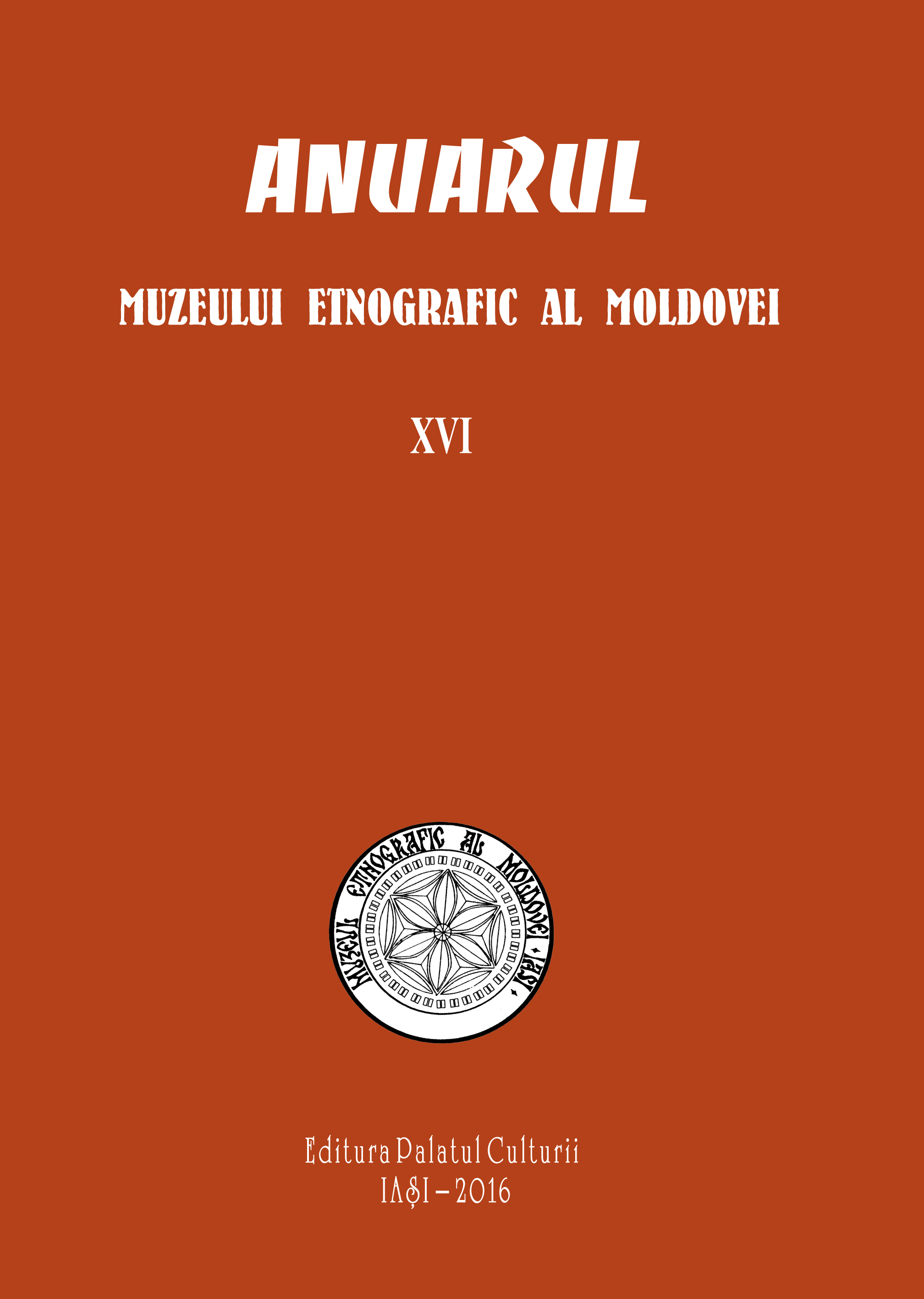
Keywords: Diary; literature; reading; reading pact;
In Eugen Negrici's diary, the writing formula is overtly contaminated by literaturity. Therefore, it openly discusses a multi-faceted issue: the Romanian literature after and before 1989, the betrayal of intellectuals, creation itself and reading.
More...Keywords: Ecrivains français d’origine roumaine; Eugen Ionesco
On choisit pour une discussion appliquée du problème de l’identité culturelle et du rapport de celle-ci à l’existence de l’altérité le cas des écrivains d’origine roumaine et d’expression française, la manière naturelle par laquelle la littérature française les a acceptés, respectivement par laquelle ils se sont assumés la vie dans une autre langue d’adoption. On va faire des références à l’oeuvre d’Eugène Ionesco, écrivain français d’origine roumaine. Ce qu’il a choisi en tant qu’écrivain c’était son français à lui, un langage qu’il a essayé de « désarticuler », de « désépaissir » pour voir le monde à travers, dans son étrangeté originelle.
More...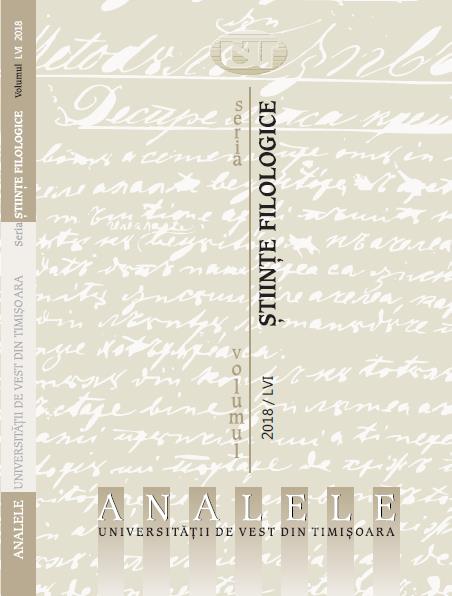
Keywords: exile; refuge; tradition; Maiorescu; Lovinescu; Luceafărul; Dimitrie Popovici; university lectures; Enlightenment; polemics; Rebreanu; Mircea Eliade; genius; demonism; students; fidelity;
The study looks into how the Literary Circle of Sibiu, the well-known literary group that was defining for the University of Cluj in exile, shaped, through its writers, a new direction in Romanian culture. To Eugen Todoran, this “new direction” meant, primarily, a novel understanding of Eminescu’s work. The present article shows how Eugen Todoran extended the Circle’s project in Timișoara, through his books about Eminescu, Maiorescu, Blaga, and through his students. He extended this project, but he also defined a way of understanding Romanian culture.
More...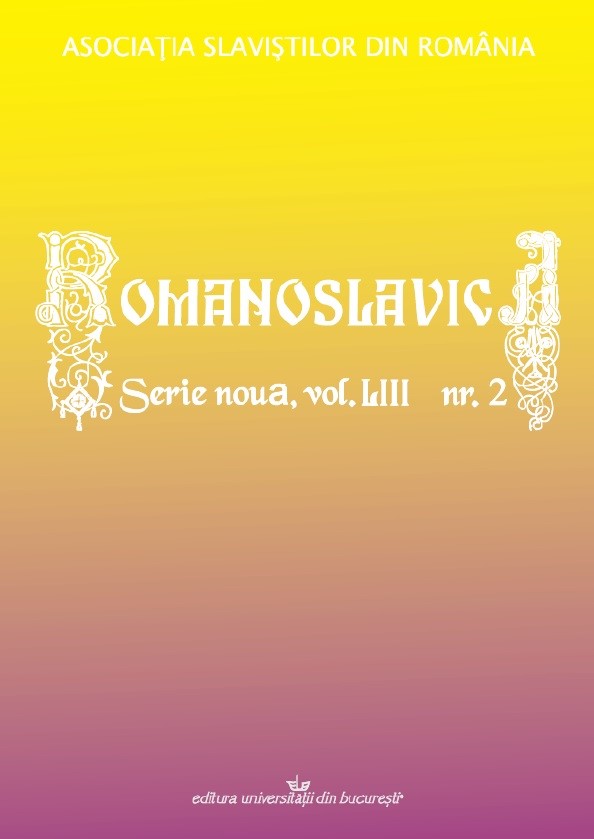
Keywords: motif of stinginess; intertextuality; comparative reading; dialogue of cultures;
In the realist structure of the short story Hagi Tudose (1903), written by the Romanian author Barbu Ştefănescu Delavrancea (1858-1918), there are incorporated motifs like stinginess, social alienation and the accumulation of capital, and forty years later, through the character of Rajka Radaković from the novel The Miss (1945), writer Ivo Andrić (1892-1975) did the same thing. Such characters embodying the stinginess, like Hagi Tudose and Rajka Radaković, have a similar psychological profile and also similarities in their replicas, having the same ideas, and thus are created conditions for a comparative reading of the mentioned works, just serving for a further dialogue and contact between these two different cultures.
More...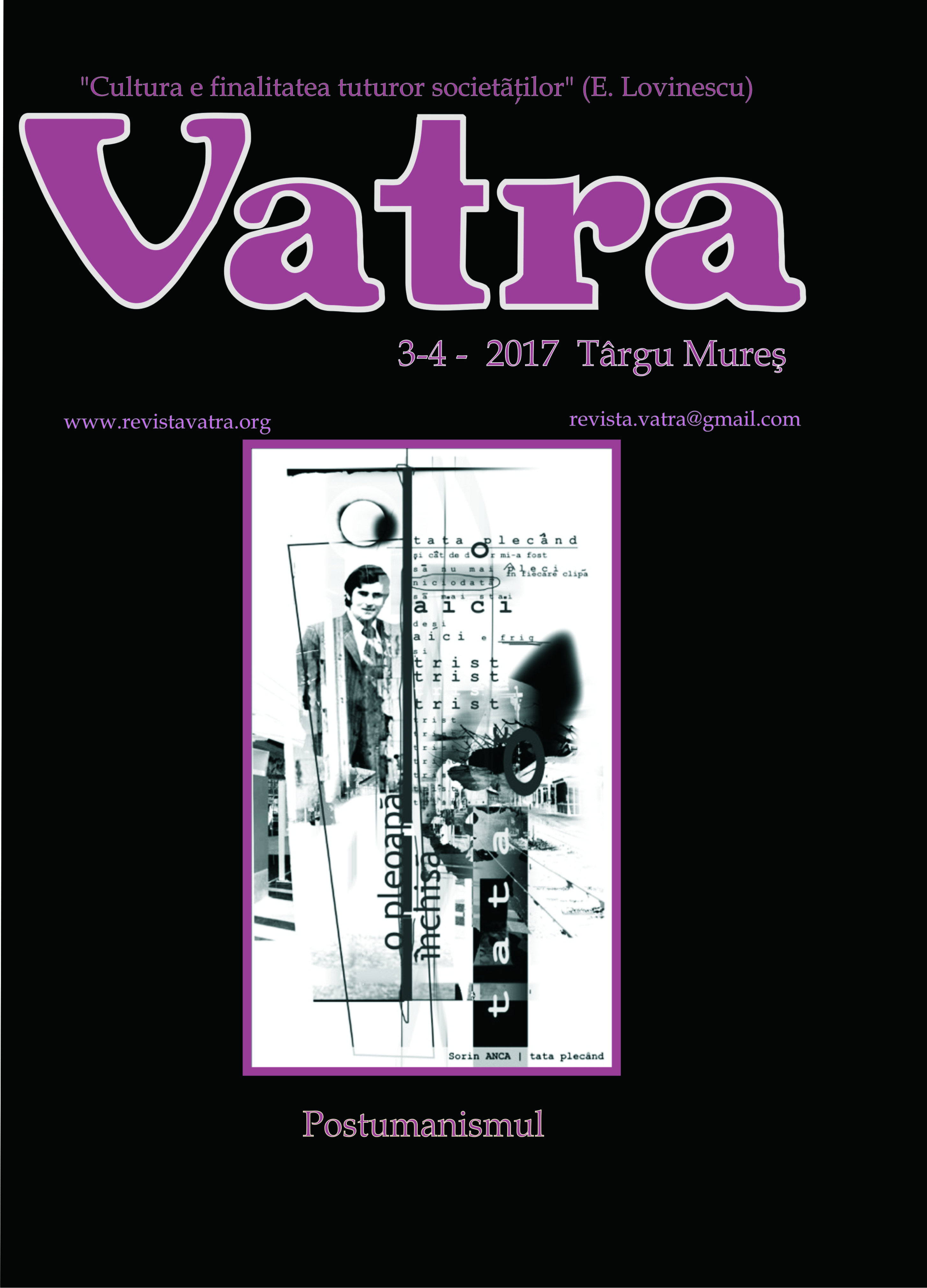
Keywords: memorialistic; childhood; interwar period; family history;
The text evokes the childhood memories of Marian Ilea and interesting aspects of his family tree.
More...
Keywords: Ionesco; daily writing; quest of the self; fragmentarity; memory;
Située au croisement du journal et de l’autobiographie, l’écriture intime d’Eugène Ionesco est une constante des préoccupations de l’écrivain français d’origine roumaine. Ses textes autoréférentiels, qu’il s’agisse du Journal en miettes (1967), de Présent passé, passé présent (1968) ou de La Quête intermittente (1987), représentent, pour l’auteur, une véritable quête existentielle et spirituelle, ainsi qu’un antidote au désespoir, à l’oubli et à la peur de la mort. Ionesco y cherche à se soustraire à la fuite du temps en se réfugiant dans l’instant ou en revivant le paradis perdu de son enfance. Son passé sʼavère pourtant difficile à récupérer dans son intégralité, car les souvenirs se présentent plutôt comme les morceaux d’un puzzle inexorablement incomplet. La fragmentarité textuelle fait écho à un moi fuyant et en proie à l’angoisse ontologique
More...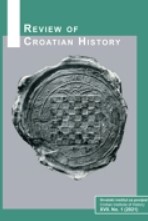
Keywords: Reverend Eugen Šutrin; Concentration camp Molat; OZN (Department for the Protection of the People); crime;
Reverend Eugen Šutrin was a victim of the supremacy of the communist ideological passion that ruled the entire area of Croatia in the immediate post-war period, including the town of Privlaka near Zadar. In this imposed atmosphere, individuals and groups of people who were close to or ideologically committed to the communist principles took it upon them-selves to decide on the fate of others. Quite often, their personal assessments and evaluations resulted in attacks on property and on the lives of individuals for whom they were determined to be their worldview or class enemies. There were two components involved in the case of Rev. Eugen Šutrin, who was murdered at the end of 1945: the first defined him as a worldview opponent and the second saw him as a witness to the events at the Italian concentration camp for civilian internees on Molat. The investigative actions taken against the suspects for the committed crime and the subsequent trials did not fully reveal which of the previously mentioned components was the key motive for the murder of Rev. Eugen Šutrin.
More...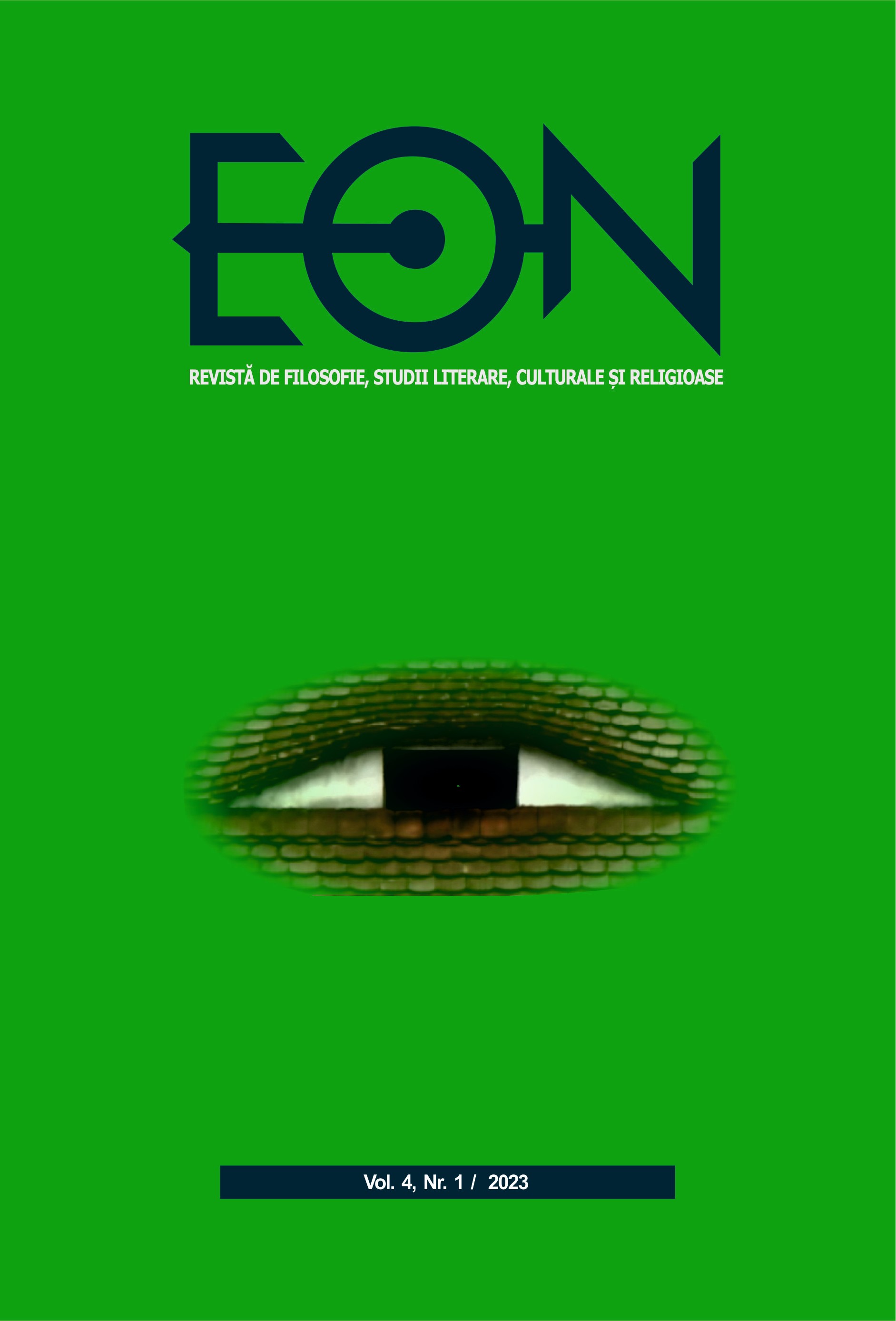
Keywords: Sburătorul; literary circle; women's literature; renewal of literature;
The Lovinescian spirit is perfected when he accepts to lead a literary magazine, at which point a new generation of writers will debut, Sburătorul contributing fundamentally to its affirmation. Although the initiative of the publication of the magazine belongs to Liviu Rebreanu, and Ion Minulescu proposes the title, Lovinescu is the one who will deal with the publication and close collaboration with the writers.
More...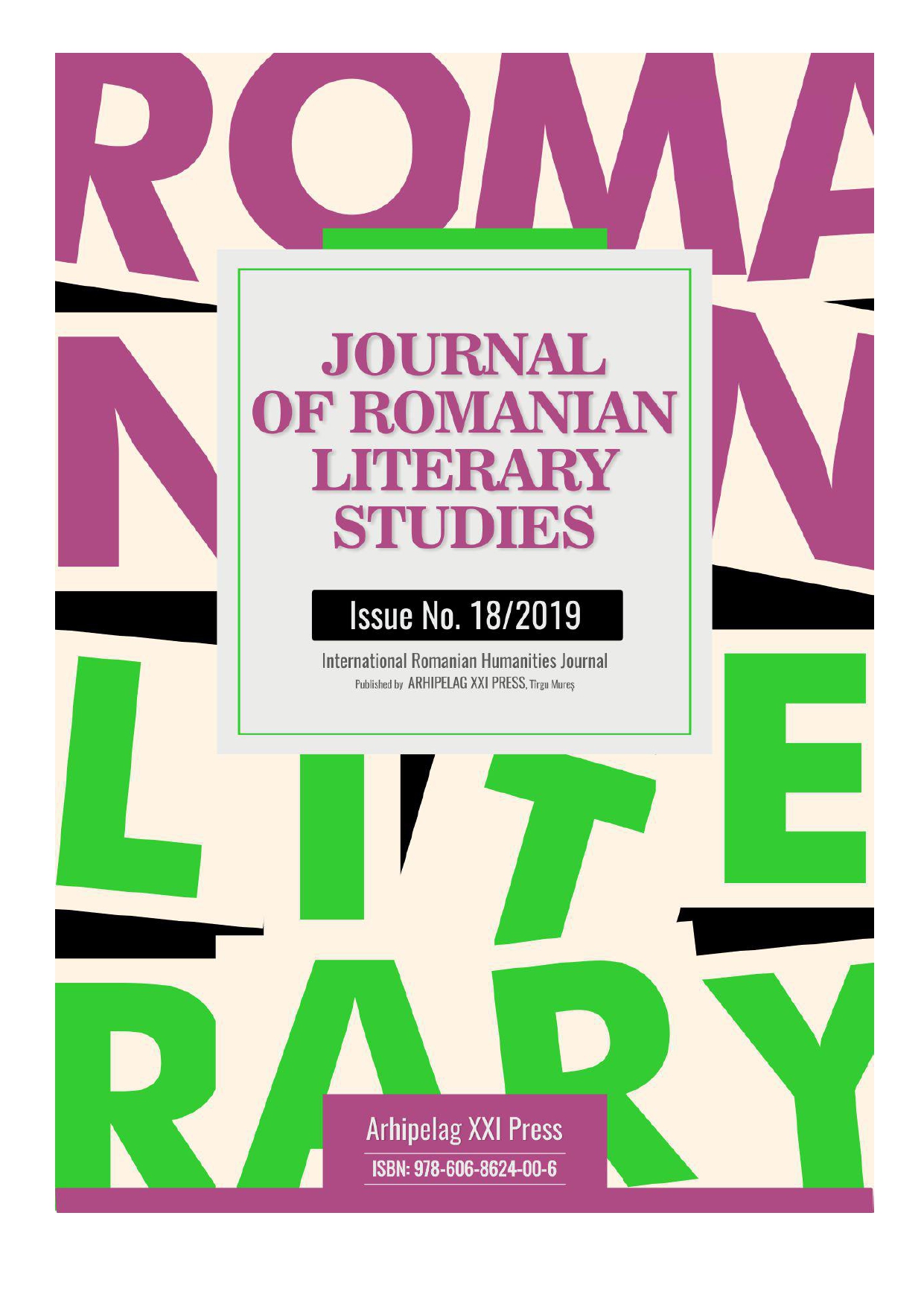
Keywords: postmodernism; life; death; feelings; ontology; decoding;
The novel addresses a lecturer who has the know-how of getting into the magic of speculative discourse. Following the postmodernist logic, the text invokes simultaneous readings and decodings. For a lecturer who has exercised his mind with the potential of lived and assumed thought, Marian Barbu's text is a unique one: the confession of a life beyond the speculative magic of abstract concepts, a deconstruction of an epistemology with the purpose of a better settlement in ontology, in its potential to be. It is a novel about death and life, about feeling and sensing and about the memory’s fight against forgetfulness.
More...